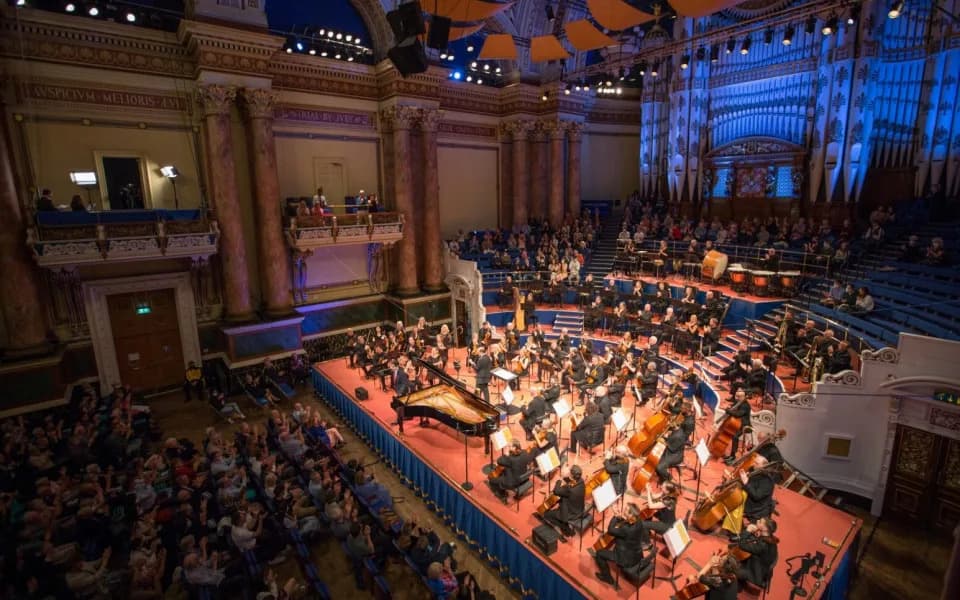How Do Musicians Express Their Emotions through Music?
 Music is a powerful means of communication, by which people share emotions, intentions, and meanings, and our personal engagement with music, whether in a live concert, listening to a CD or via a streaming service, is driven by the medium’s ability to convey and communicate emotion. Music can arouse strong feelings, recall memories; it can promote extreme happiness or engender feelings of deep love or loss…
Music is a powerful means of communication, by which people share emotions, intentions, and meanings, and our personal engagement with music, whether in a live concert, listening to a CD or via a streaming service, is driven by the medium’s ability to convey and communicate emotion. Music can arouse strong feelings, recall memories; it can promote extreme happiness or engender feelings of deep love or loss…
Like speech, music has an acoustic code for expressing emotion, and even if a piece of music is unfamiliar, we can “decode” its message. Because of this, while musicians perform music according to their own interpretations, we can still understand the basic acoustic code: a crescendo indicates increased intensity or drama; a minor key suggests seriousness or melancholy; pauses create suspense and anticipation.
For the performer, the ability to communicate emotion, or tell a story, in music requires more than the technical facility to process what’s on the score. A good understanding of the structure of the music is important for a convincing, and communicative, musical performance, allowing the musician to respond to aspects such as variations in tempo and dynamics, harmonic and melodic tension and release, phrasing, repetitions, etc. By responding to these elements, the listener is given a set of musical “signposts” which guide them through the music, and bring cohesion, interest and variety to the performance.
A performer must resolve the entire depth of the ideas contained there. How often carefully notated shadings, accents, tempo changes reveal not simply a positive characteristic of sound but rather the untold sides of the author’s concept. How many directions we find in Schumann, Chopin, Scriabin, even Beethoven that a pianist should follow not in a real sound but by addressing the subtlest hints to the imagination of a listener!
– Samuil Feinberg
Communicating emotion is the most elusive aspect of the performer’s skillset, and is the fundamental reason why people – performers and listeners – engage with music. At a basic level, music communicates specific emotions through simple musical devices, for example:
- Happy – fast tempo, running notes, staccato, bright sound, major key
- Sad – very slow tempo, minor key, legato, descending sequences or falling intervals, diminuendo, ritardando
But there is something else which makes a performance particularly rich in expression or communication. Performance is generally regarded as a synthesis of both technical and expressive skills. Technical skills can be taught, while expression is more instinctive: it is of course possible to act upon expression markings in the score, but in order for these to sound convincing and, more importantly, natural, the performer must draw upon other factors, including extra-musical ones.
Many performers create a vivid internal musical and artistic vision of the music they are playing. This may include an aural model; the use of metaphors or adjectives to create a narrative or picture for the music; and personal experience, including extra-musical experiences. A performer’s own emotional experiences may influence the way they convey emotion in the music. This suggests that only a performer who has actually experienced the highs and lows of romantic love can perform, for example, Schumann’s Fantasie in C with the requisite emotional insight. Of course, not every performer will have the life experience, but they can still convey emotion in their performance by awakening their imagination to bring expression and emotional depth to their playing. In addition, in a concert situation, the imagination of the listener is very much at the disposal of the performer, to be shaped and influenced through sound.
Robert Schumann: Fantasie in C – III. Langsam getragen (Piotr Anderszewski, piano)
We talk about performers “communicating the composer’s intentions” (i.e. paying attention to and acting upon directions in the score such as dynamics, tempo and expression markings, articulation, rests and pauses etc) or “conveying the story of the music“, but fundamentally I think as listeners we crave a performance which touches us personally. Listening to music is a highly subjective and personal experience – we’ve all had those ‘Proustian rush’ moments when a piece of music, or a single movement or even a phrase, provokes an involuntary memory, sometimes with physical side-effects such as goosebumps or shivers (physiologically, this is the result of the release of Dopamine, the brain’s “reward” neurotransmitter). Sometimes we want to feel uplifted or transported by music, taken us out of ourselves and the mundanity of everyday life to another place, to experience something touching the spiritual or transcendent. Such moments, and the memory of them, are very special and individual.
Occasionally one is at a concert where a very palpable sense of collective concentration can be felt in the auditorium. This occurs when the performer creates an intense communication between music and listener. I experienced it, along with the rest of the Wigmore Hall audience, at a performance of Beethoven’s last three sonatas by the Russian pianist Igor Levit in June 2017. The sense of concentrated listening and suspense was extraordinary. How did Levit achieve it? I’m not sure…. a combination of exquisite tone control, musical understanding and the sheer power of the music itself.
Igor Stravinsky: Ragtime (Columbia Jazz Ensemble; Igor Stravinsky, cond.)
Most people like music because it gives them certain emotions such as joy, grief, sadness, and image of nature, a subject for daydreams or – still better – oblivion from “everyday life”. They want a drug – dope -…. Music would not be worth much if it were reduced to such an end. When people have learned to love music for itself, when they listen with other ears, their enjoyment will be of a far higher and more potent order, and they will be able to judge it on a higher plane and realise its intrinsic value.
– Igor Stravinsky
For more of the best in classical music, sign up to our E-Newsletter
Igor Levit Plays Beethoven’s Piano Sonata No. 30 in E major, Op.109



